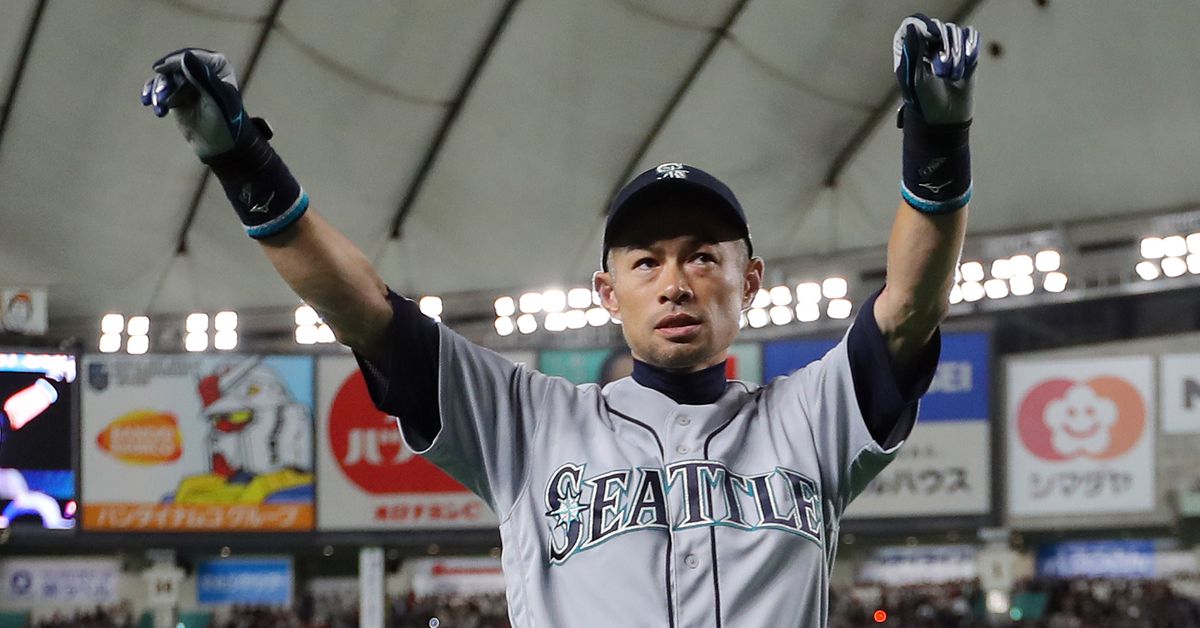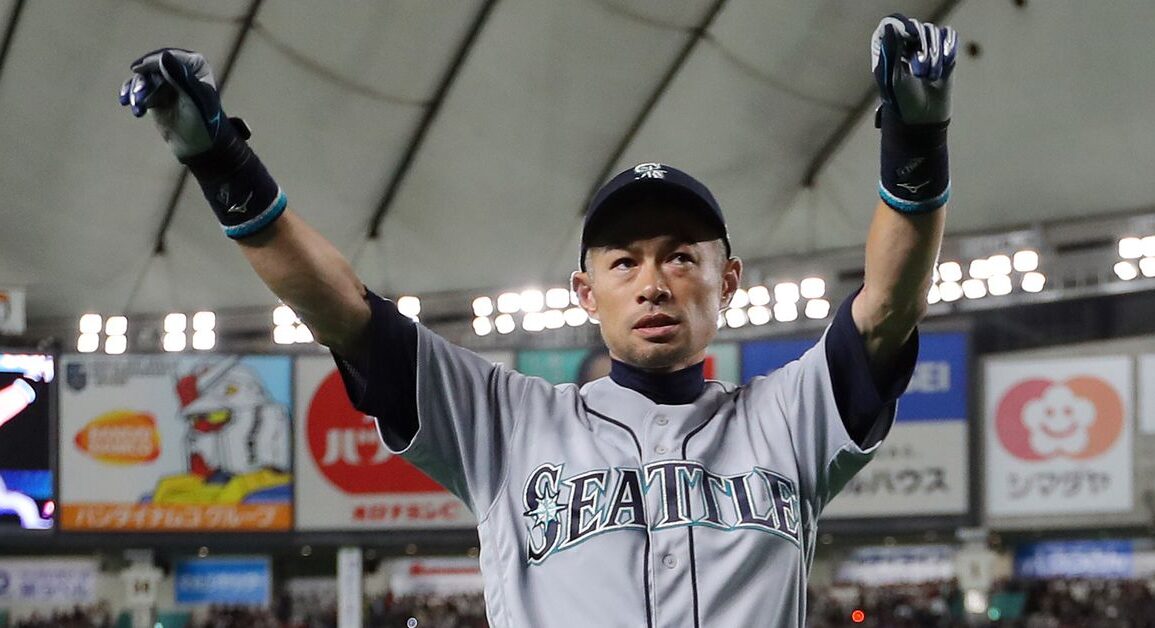
Ichiro Suzuki’s first-ballot selection to the Hall of Fame was taken as a fait accompli by everyone – except maybe the man himself.
“It was all set up,” he explained through longtime translator Allen Turner. “There was supposed to be a time frame, and 2:15 could have been the first time that it could have happened. So we were all set up like it was going to happen. And that call didn’t come for about fifteen minutes. And so I started to think…maybe it’s not going to come.”
Of course the call came. But the fact that even a shadow of a doubt crept into his mind is reflective of Ichiro the man: humble, refusing to take anything for granted, and still carrying some feelings of being an outsider even after a long and illustrious career that saw him break barriers throughout baseball, ending in his election to the Hall of Fame.
But not really ending, because baseball and Ichiro will never end. Baseball is hard-wired into his personality, written into his genetic code, even as now his focus has shifted outside of the lines. It’s fueled his sense of individuality, something that’s not always a given in the collectivist-minded Japanese culture (as seen in the Japanese proverb “the nail that sticks up gets hammered down”). That individuality, the freedom to be himself, has in turn shaped his style of play, his idiosyncratic way of speaking, his fashion sense, and, ultimately, the way he has chosen to relate to the game he loves.
When Ichiro came to play stateside, he came with the freedom to carve his own path but also the self-imposed burden of high expectations, including carrying the banner not just for himself but for an entire nation of players. “I had just finished seven years of being the leading hitter in [the NPB],” Ichiro said through his translator. “I felt like there was going to be judgement on Japanese baseball…I knew that how I performed was going to be looked at as, ‘this is Japanese baseball.’ So there was definitely that pressure.”
Even after a dazzling start to his MLB career that saw him named both Rookie of the Year and MVP – a feat accomplished just one other time, by Fred Lynn in 1975 – Ichiro said he didn’t fully feel comfortable until he had three years in the league. “That’s when I think that people saw what I was capable of.”
Perhaps it was that sense of comfort that fueled his 2004 season, a year when he led the league in hits, batting average, and bWAR. His 262 hits broke George Sisler’s record that year for single-season hits, and his .372 average that season is still the highest average for any qualified hitter since 2004. But for all of his accomplishments, Ichiro still carries with him the memory of those early days of uncertainty.
“At that time, in 2001, there’s probably not one person on this Earth that thought this day would come,” said Ichiro through his translator.
An additional level of pressure was brought by the number Ichiro wore in Seattle: 51 was already known to fans as the number of franchise legend Randy Johnson, but it was also the number Ichiro had worn for years as a member of the Orix Blue Wave. Despite professing to the team that he didn’t need to have the same number as he’d worn in Japan, the team issued him the number anyway, leading Ichiro to have a conversation with the future Hall-of-Famer Johnson, promising he would not “bring shame” onto the number.
That’s the cost of being a trailblazer, of being the nail that sticks up: the days of doubt never fully leave your side. What sustained Ichiro all those years is his legendary work ethic, his unshakable sense that no one was outworking him, that he was doing everything in his power to be the best he could be. And in those long dark nights of the soul, he also was given the gift of knowing himself, something he preaches to young players to this day as a foundational part of being a big-leaguer: understanding what your body can and cannot do, and taking care of it to put it in the best position possible to do those things.
“There are so many guys that have way more talent than I do,” said the ever-humble Ichiro. “But I would really love for them to understand themselves, and get to know themselves, and to know what you can do, and that will help them gradually get to the point where they need to be.”
“But they need to know themselves first.”
Cooperstown has long been a special place for Ichiro, who was delighted to tour the deep archives on his first visit, and returned for many years. Every year there was a player whose name was mentioned alongside Ichiro’s given whatever milestone he was nearing, the museum curators would bring him memorabilia associated with that player, allowing him to literally touch the history he was chasing. (“I found out he has shoes,” said Ichiro delightedly when the staff brought him Joe Jackson’s equipment.)
“It was almost like having a conversation with them,” he mused. “It’s just such a special feeling that you get there.”
“In this day and age, there’s so much stress in the world we live in today. But, wow. There’s a town just for baseball, and you can go there..and you can just feel that peace.”
“I always felt like the Hall of Fame was for active players,” he continued. “I really feel like all the players need to go, and they can feel the peace that baseball brings. It’s not for retired guys, it’s for the active players to go and get the peace that they need to keep playing.”
It has been a long road for Ichiro through baseball, through the valleys of self-doubt and pressure to the highs of record-breaking accomplishments, none so high as the election to baseball’s most exclusive club. But for Ichiro, Cooperstown is more than just the ultimate symbol of belonging to the fraternity of baseball’s greats. It’s his place of peace, and now he will be able to lay his equipment alongside those whose magic he felt for so many years, for the next generations of players to be in conversation with him—no translator needed.
This post was originally published on this site be sure to check out more of their content.







